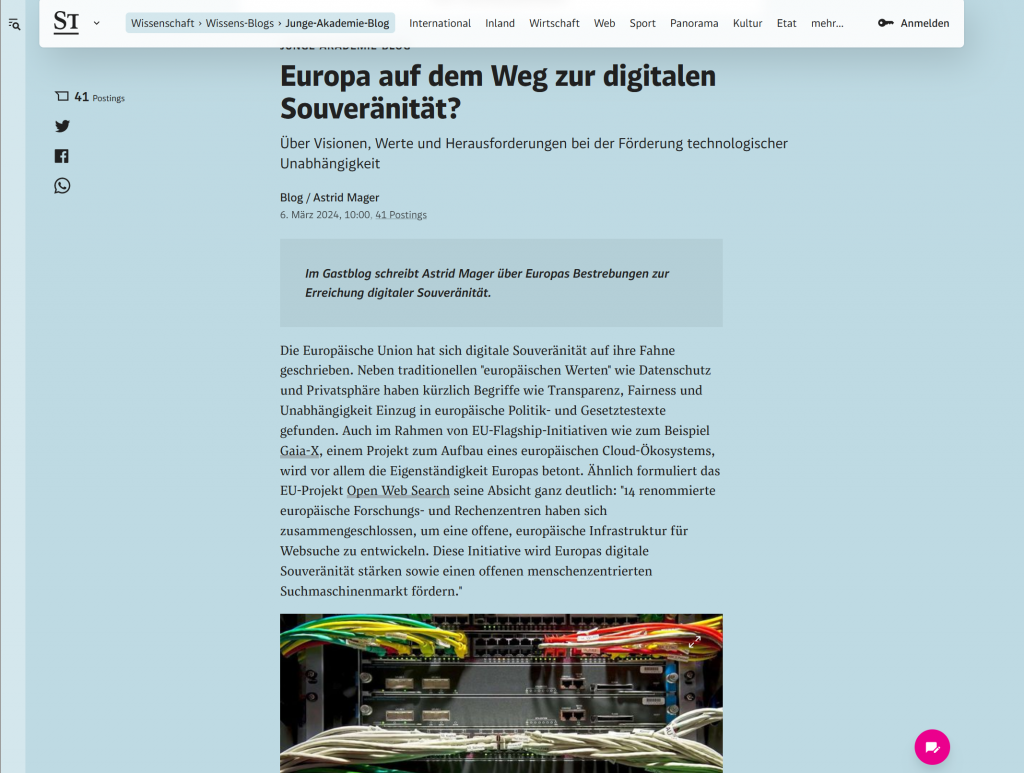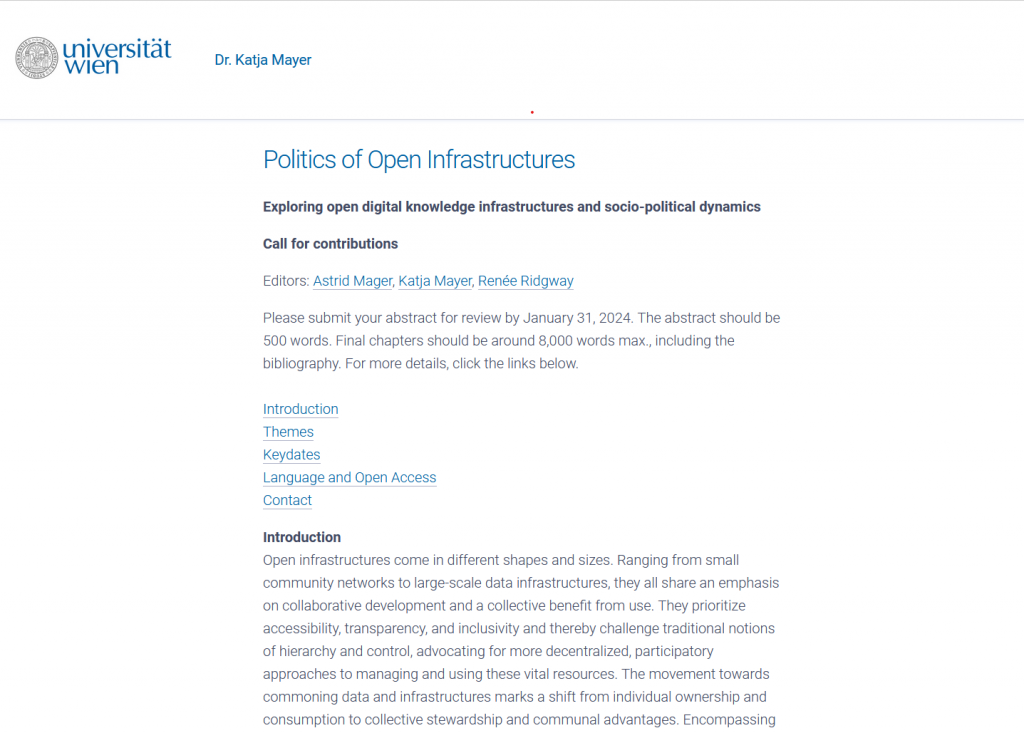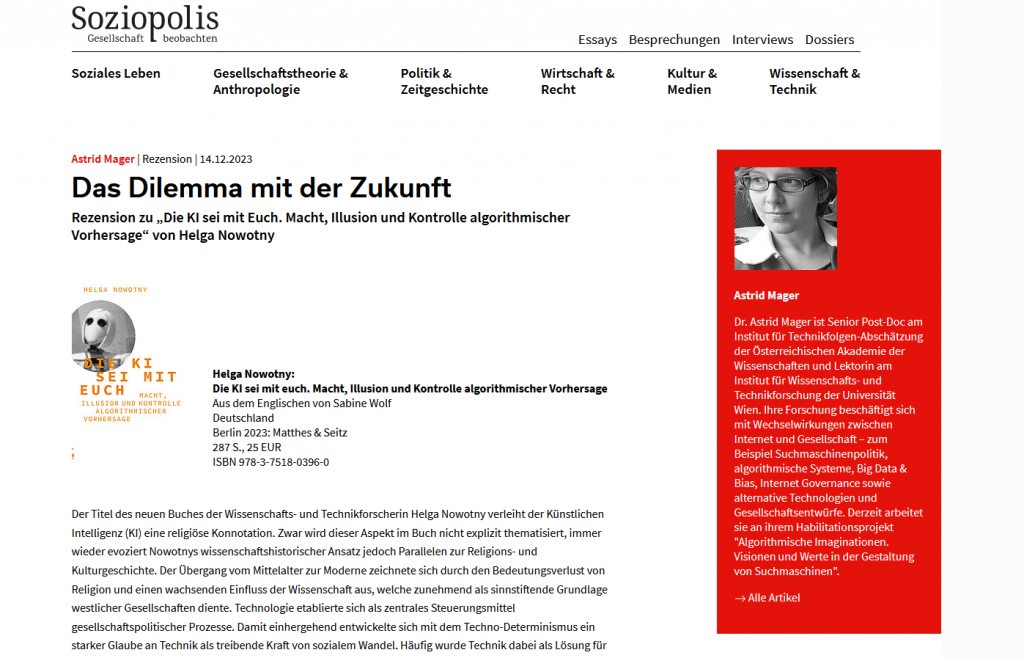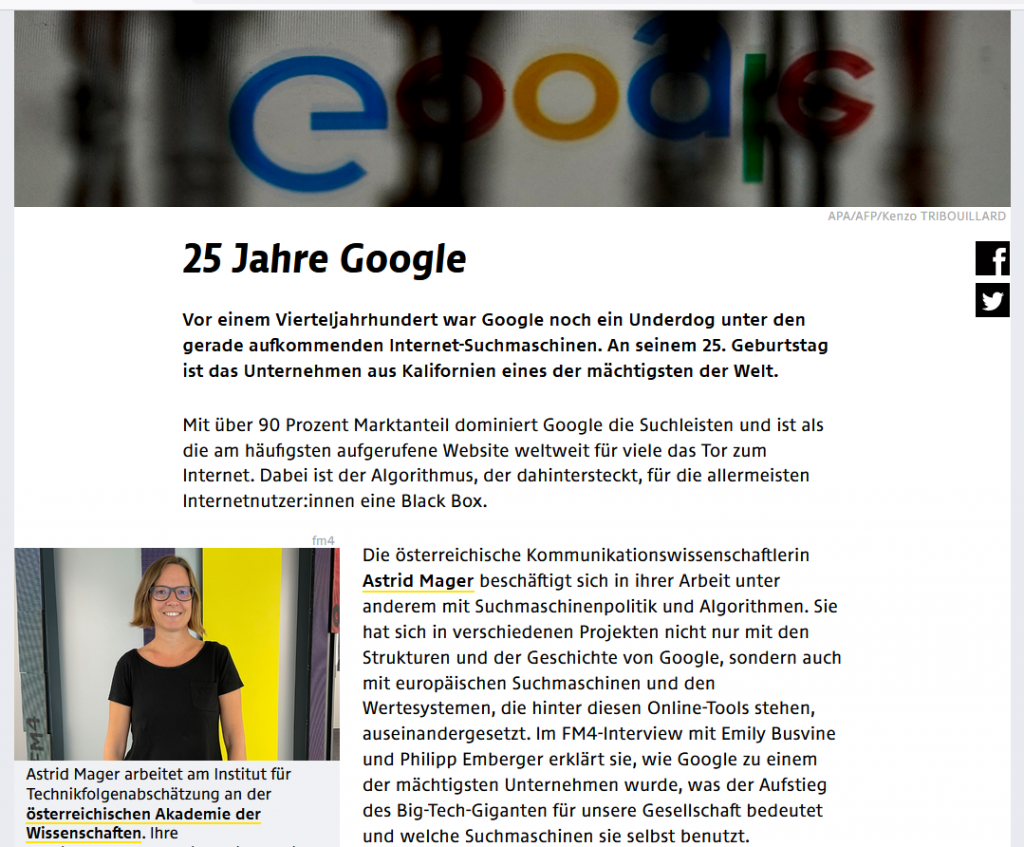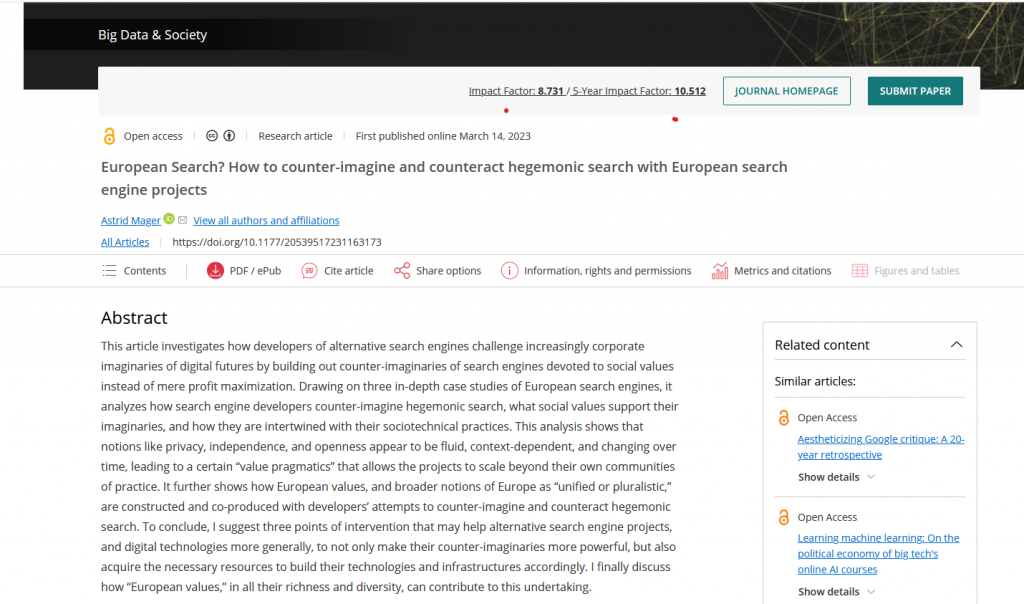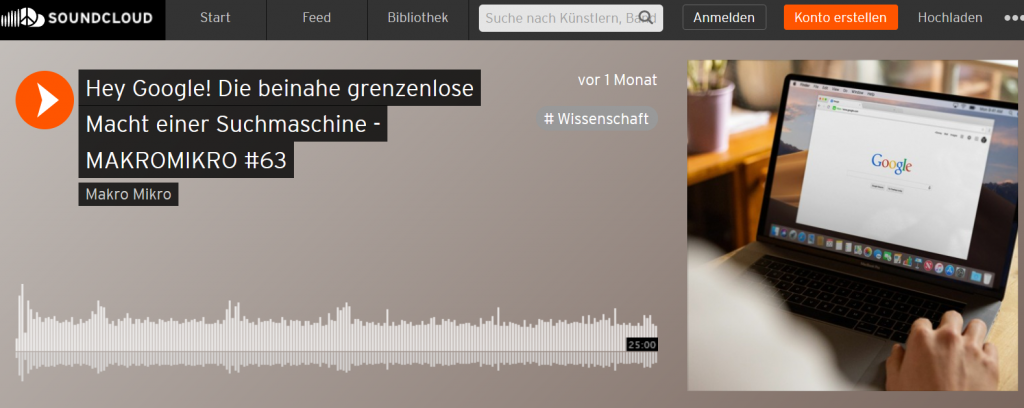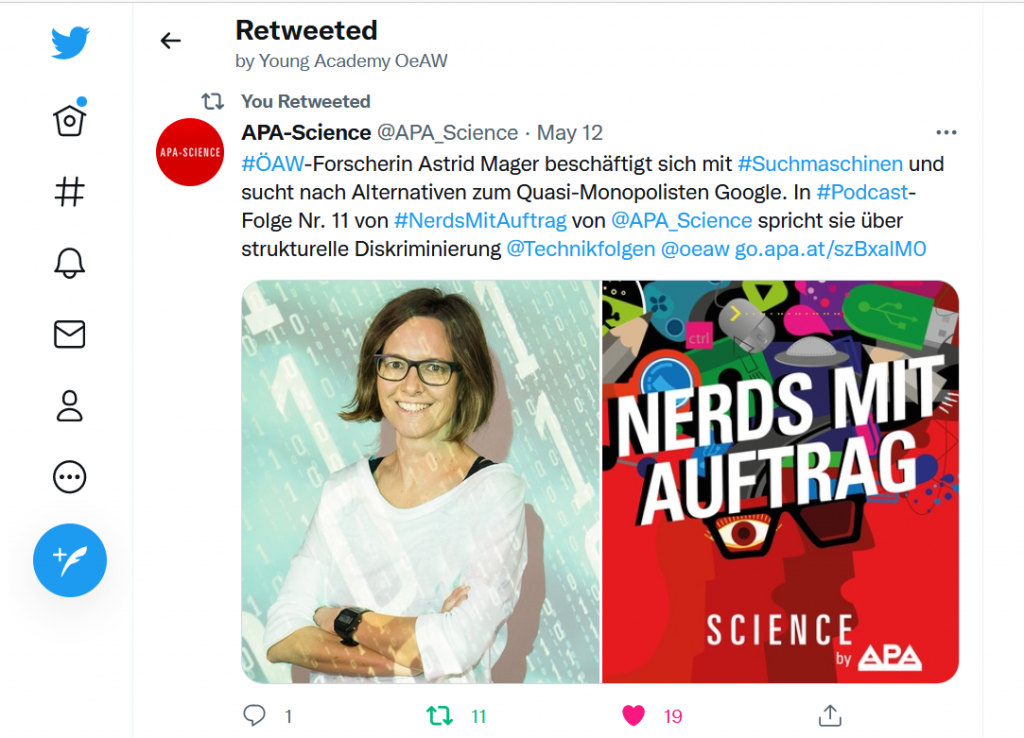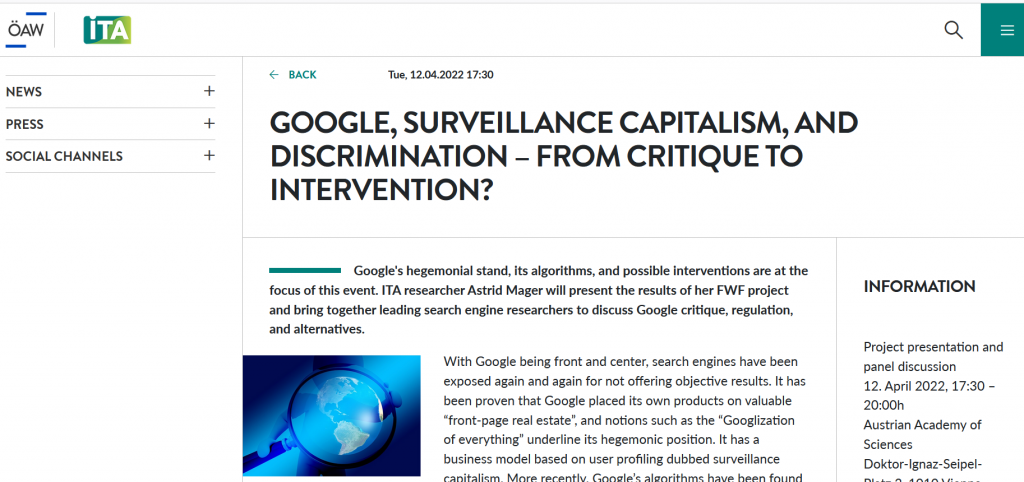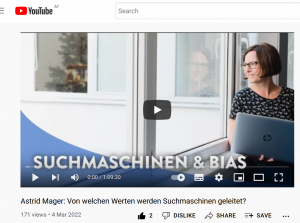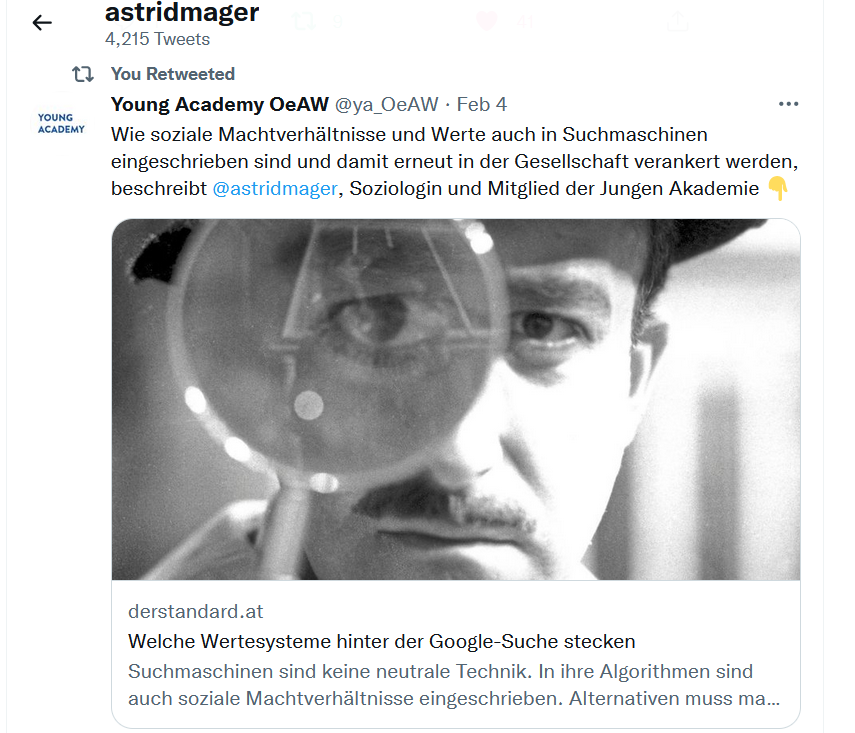Im Oktober habe ich mal wieder mit Herbert Gnauer über Suchmaschinen diskutiert (Radio Dispositiv auf Orange, 94.0). Genauer über alternative Suchmaschinen, sowie den Aufbau offener – öffentlich finanzierter – IT Infrastrukturen. Ein offener Web Index könnte die Grundlage für die Entwicklung von ganz unterschiedlichen Suchmaschinen, Ranking-Instrumenten, und Applikationen sein. Er könnte dem gegenwärtigen Monopolisten (Google) eine reichhaltige, buntere, diversere Suchmaschinenlandschaft entgegensetzen. Diese würde wesentlich besser zu unseren “europäischen Werten” – und hier insbesondere dem pluralen, multikulturellen, und diversen Europa – passen, als hegemoniale Ansprüche ein “europäisches Google” zu bauen, dem Europa kaum gerecht werden kann – alleine schon deshalb, weil Europa ganz anders funktioniert als die USA (und China) – Stichwort Datenschutz, aber auch kulturelle Eigenheiten, verschiedene Sprachen, fragmentierte Märkte etc, die es positiv nutzbar zu machen gilt! Ein offener Web Index – wie übrigens auch das dezentrale social network Mastodon – halten daher nicht nur alternative, verteilte, nachhaltigere Technologien für uns bereit, sondern auch alternative Imaginationen von Europa, die es weiter zu verfolgen gilt.
Zwei Initiativen machen sich hier insbesondere starkt: Die Open Web Index Initiative und die Open Search Foundation, die beide den Aufbau einens offenen Web Indexes anstreben. Es lohnt sich diese großartigen Projekte im Detail unter die Lupe zu nehmen!
Vielen Dank Herbert, dass Du diesen Ideen Raum in Deiner Sendung geboten hast! Es ist mir immer wieder eine Freude! Spoiler: zwei wiss. Artikel dazu sind gerade im Erscheinen (Big Data & Society) & in Begutachtung (book Project Europe) – more info coming soon!
Link zur Sendung Dispositiv auf Radio Orange 94.0: Machtmittel Suchmaschine – Astrid Mager zum Aufbau alternativer IT-Infrastrukturen
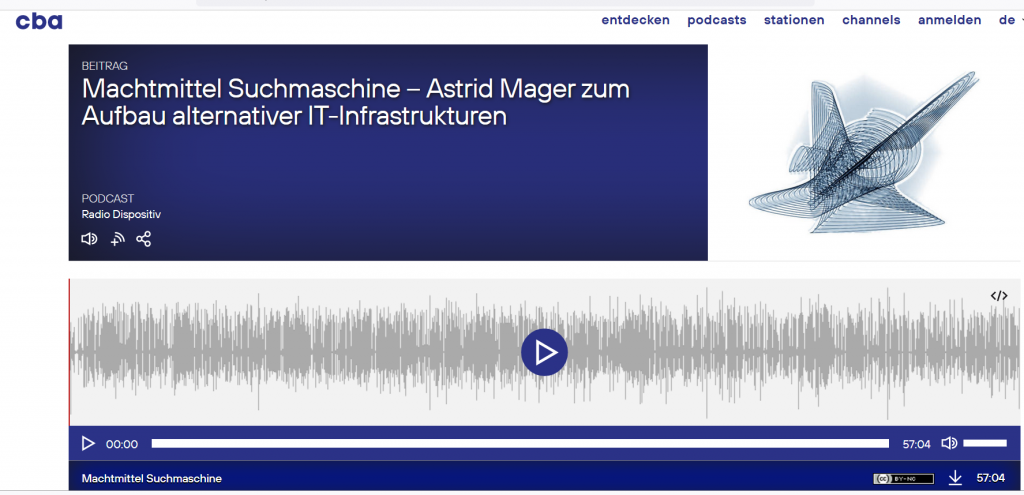
 I hope to see you there!! Also, the final report of the project is out now!!! (in English) Whooo!
I hope to see you there!! Also, the final report of the project is out now!!! (in English) Whooo! 

